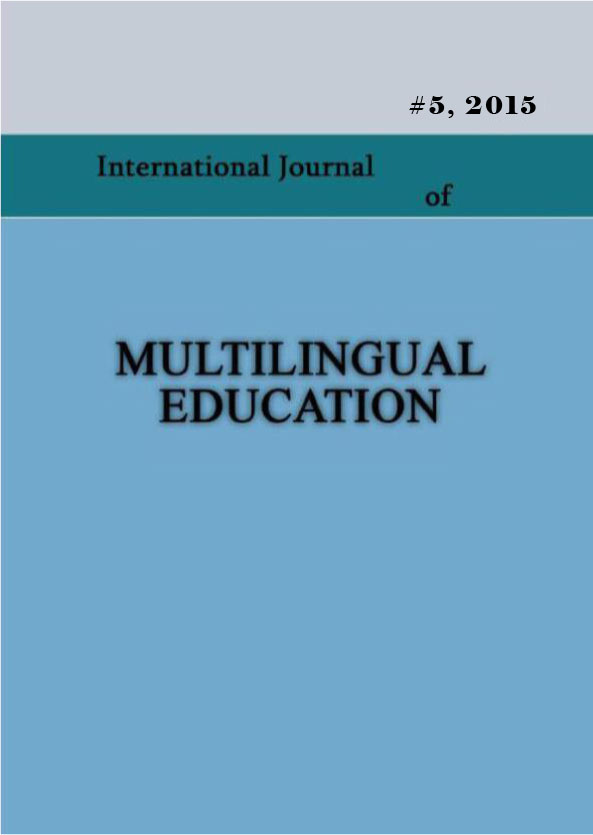AN EXTENSION OF THE POETIC TEXT COMPREHENSION THROUGH COMPARATIVE ANALYSIS OF ITS MULTILINGUAL TRANSLATION VARIANTS
Keywords:
multilingual translations, poetry, poetic speech, instrumentation, sound symbolism.Abstract
Sound instrumentation of poetic speech as one of the drivers producing direct influence on the emersion and genesis of sound symbolism in the tissue of poetic texts has always been, and remains a subject of vivid scientific interest and polemics among linguists and literary theorists of both the past and nowadays. A correlation between phonetic significance and semantic meaning still remains a subject of clarification and more precise definition. Those who tried to find a correlation between the formal and the notional used to apply for studying appropriate stylistic means of sound arrangement of poetical works, such as paronymic attraction, parallelism, and poetical etymology. In the later research works it is stated that while the stylistic means foregrounded by the precursors are comprehended as those deliberately used by poets to their full extent, the area of the subconscious mind should be considered of at least equal importance in this regard, as the latter produces great influence on the ways of artistic imagery formation as well as ability of its further perception and appreciation. In this sense it appears that the connection between sounding and meaning, or sound symbolism, can hardly be revealed in monolingual poetic sample. Contemporary linguistics has no doubt about the fact, that sounds of speech, even spelled separately, do have an ability of forming non-sound associations and images. The aim of this article is to find links which unite a unique poetic whole with its multilingual translations.
References
Boguslavskaya, 1996 - Boguslavskaya, G. P. Linguistic View of the World and National Culture (Text) / G. P. Boguslavskaya // Language and Culture: 4th Intern. Conf. – P. 2. – К., 1996. – P. 214–216.
Weidle, 1995 - Weidle, W. Embryology of Poetry, (Text) / W. Weidle. – M.,1995. - P.73-83.
Gachev, 2015 - Gachev, G. D. National Images of the World (Electronic source) / G. D. Gachev: (Access mode): available at: http://onlinelibrary.at.ua
Golub, 1993 - Golub, D. E. Rozental Secrets of Good Speech (Text) / I. B. Golub, D. E. Rozental. – M. : International relations, 1993. – P. 83.
Zhuravlev, 1974 - Zhuravlev, A. P. Phonetic Meaning (Text) / A. P. Zhuravlev. – L., 1974. – P. 28.
Leontiev, 2015 - Leontiev, A. A. Fundamental Psycholinguistics (Electronic source) / A. A. Leontiev: (Access mode): available at: http://www.klex.ru
Luria, 1974 - Luria, A. R. The Historical Development of Cognitive Processes (Text) / A. R. Luria. – M., 1974. – P. 56-57.
Nikroshkina, 2010 - Nikroshkina, S. V. Experimental Investigation of the Universal Sound Symbolism as exemplified in differently structured Languages (Electronic source) / Syn. of thes. – Biysk, 2010. - (Access mode): available at: http://disser.cat
Ozerov, 1986 - Ozerov, L. A. Double Portrait (About Soviet School of Poetic Translation) (Text) / L. A. Ozerov. – M., 1986. – P. 46.
Somova, 1991 - Somova, E. G. Sound Symbolism as a Phonostylistic Means in a Poetic Text (Text) / E. G. Somova. – Saint Petersburg, 1991. – P.3-13.
Tynianov, 2007 - Tynianov, Y. N. Problem of Versicular Language (Text) / Y. N. Tynianov. – Moscow: «KomKniga», 2007. – P. 85.
Published
How to Cite
Issue
Section
License
Copyright (c) 2015 Viktoria Iashkina

This work is licensed under a Creative Commons Attribution-NonCommercial 4.0 International License.
Copyright (c) - Authors who publish with this journal agree to the following terms: Authors retain copyright and grant the journal the right of first publication with the work simultaneously licensed under a Creative Commons Attribution-Noncommercial 4.0 International License, which allows others to share the work with an acknowledgement of the work's authorship and initial publication in this journal. Authors are permitted and encouraged to post their work online (e.g., in institutional repositories or on their personal website) prior to and during the submission process, as it can lead to productive exchanges, as well as earlier and greater citation of published work (see The Effect of Open Access). Authors may enter into separate, additional contractual arrangements for the non-exclusive distribution of the journal's published version of the work (e.g., post it to a repository or publish it in a book), with an acknowledgement of its initial publication in this journal.

